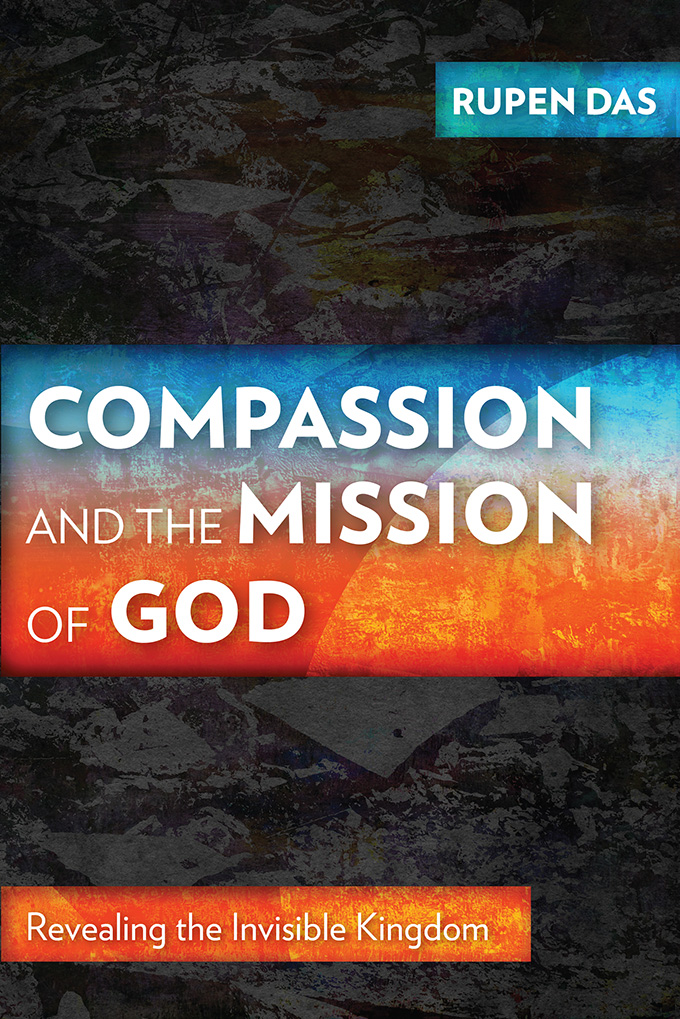Encountering a God of Compassion
By Rupen Das
An excerpt from Compassion and the Mission of God (Langham Global Library), 2015.
As I have traveled through countries and cultures, I have wondered how the poor, the refugees, those who are victims of human trafficking and abuse, and those who have survived catastrophic disasters, understand God. Is there a theology that makes sense to them? While I react with anger at the injustices I see, and this is usually accompanied with a deep sense of sadness in realizing that this is not the way God intended this world to be, I have been at a loss on how to see the world through the eyes of those who are victims of evil, or to understand why they would even turn to a God who seemingly has betrayed them. Yet, they see a God who is compassionate.
Maybe the reason I don’t understand why the poor and the victims of evil would even seek God is because my theology focuses so much on a triumphant God. Does this exclusive focus on the victory of Christ set up expectations that his victory protects us from all evil and suffering here in the present? Maybe this is the reason for our challenges to God as to why he allows suffering in our lives when supposedly he has conquered sin, suffering and death? Our scientific and technological worldview expects instant solutions to every problem we face. So if Christ has won the battle over evil and suffering and we still suffer, then maybe his victory was not real, or maybe God and the spiritual world are not relevant to our daily lives. The God we believed in did not live up to our expectations.
When we don’t experience this triumphant reality in the “in-between times” that we live in, when the kingdom of God has come but is not yet manifested in all its fullness, we are at a loss as to what to believe about this present world and the reality of evil. Our theology has missed the importance of the darkness and disillusionment that the disciples experienced in the “in-between time,” – the Saturday between Good Friday and Easter Sunday.
On that first Good Friday the disciples had no knowledge that there was going to be an Easter Sunday. Their teacher, whom they had come to realize was God himself, had died on the cross. With his death, the promises of a better world and of the kingdom coming were shattered by the events at the Garden of Gethsemane and all that followed, culminating with the horrors and despair of the crucifixion. The darkness, the confusion, and the death of the dreams as they woke up on Saturday morning are hard to imagine, and can only be understood by those who have faced a sudden, horrifying and tragic death of a loved one. It was only later that they understood the meaning of the cross as being the means of forgiveness of sins and redemption. However, what unfolded on that Easter Sunday morning would forever transform the disciples. The resurrection was so completely unexpected, stunning, and unbelievable. The realization that death had been conquered, that the dreams of a new world were not dead, and that evil did not have to enslave people, sent a thrill through the disciples. The sense of desolation that the Saturday of the salvation narrative speaks so eloquently about through its silence is not the end of the story. There is a resurrection, with God reappearing.
Unlike the disciples who did not know that there would be an Easter Sunday, we know that there is a future because of the resurrection. The promises of Easter Sunday for new life and a new beginning come into focus. One day in the social, economic and political order of society there will be justice and peace – the promise of the kingdom of God. We look forward to the day when, “the kingdom of the world has become the kingdom of our Lord and of his Messiah, and he will reign for ever and ever” (Rev 11:15).
Yet, so much of life is lived in the Saturdays of the salvation narrative, when dreams, hopes and parts of our being may have died, when there is a sense of abandonment and of being alone. It was to a disciple like Matthew that God reveals the identity of Christ. Even though he was reasonably wealthy, Matthew lived on the margins of Jewish society hated by most people because he worked for the Roman occupiers as a tax collector. He was a Jew who did not belong. Matthew the outcast, now the gospel writer, identifies Christ as Immanuel – as God who would dwell with his people, even with somebody like him. This then is the image of a compassionate God – one who dwells with his flawed people, and in the process, transforms them.
Through all of human history, it has been the presence of God in the midst of his people that distinguished them from all the other people on the face of the earth. This then is foundational in how the church is to minister. It is by enabling people to encounter the living God, one who is compassionate and cares for them deeply. Do they understand what it means that Christ is Savior (that he is able to save them) and that he is Lord (that he is greater than the circumstances that enslave them)?
The people we minister to – the poor, those who live on the margins of society, the refugees, the migrant workers, the abused and abandoned women and children, the single mothers – understand the good news as the fact that God is compassionate and that he will hear them if they call. The gospel that Christ has conquered sin and death, and offers forgiveness, and that they need to repent, has little meaning for them, when in fact they feel that they are the ones who have been sinned against and experience the full brunt of evil in society. Most are not seeking revenge, or a political and social revolution. They know the full impact of evil only too well and they feel that they are powerless to change things in society. Neither can they relate to a message of a triumphant God, when their reality seems to speak about a God who is absent.
Instead they want help in the here and now; they want to know that someone cares and that they haven’t been abandoned; they want justice and what is rightfully theirs. They want to know that there is something greater than the struggles of their present lives. So when they encounter a compassionate God, the experience is radical for them.
I am often ashamed that I have forgotten how life giving the reality of the presence of Christ is. When I see desperate refugees, who have experienced unspeakable horrors, hear about a God who cares for them and that he hears their prayers because of Christ, I wonder how deep is my understanding of the God I worship. The transformation and awe is so visible in their faces when they speak about the God they have encountered. The strange paradox on this side of eternity is that the victory of God is not that the church is triumphant, but that God enters into the darkness and walks with his people without the darkness overcoming him.
If the poor and the broken are seeking a God who is compassionate, how do we as the people of God then live? Jesus in John 10:10 says, “The thief comes only to steal and kill and destroy; I have come that they may have life, and have it to the full.” Jesus talks about two value systems, one of death and one of life. In my sojourn through many cultures as an outsider looking in, I see life and death co-existing side by side. In most non-western cultures life is not sanitized and children are not protected from the realities of death and dying. Death is very much part of the fabric and vocabulary of everyday living. Yet in the midst of death and decay the routines of life continue.
The theologian Walter Brueggemann writes that what is needed is a prophetic imagination that is able to present and live out an alternative value system and worldview to that of the society in which we live. He writes, “The task of prophetic ministry is to nurture, nourish, and evoke a consciousness and perception alternative to the consciousness and perception of the dominant culture around us.” The ministries of compassion and social justice are in effect prophetic ministries because they embody the values at the core of the kingdom of God. Most people encounter the invisible kingdom for the first time through these ministries and realize that maybe there is an alternative to the realities of the world they live in. This opens them to the possibility of a God who is compassionate.
To be compassionate in the midst of a culture which robs people of life is what it means to be the people of God in the world that we live in. Such a life reflects the very nature and character of the God we worship. “He will have compassion on the poor and needy, And the lives of the needy he will save.” (Ps 72:13 NASB)
Rupen Das, Compassion and the Mission of God (Chapter 11: Conclusion – A God of Compassion) (Langham Global Library), 2015. Used with permission.
Rupen Das is National Director of the Canadian Bible Society. He was Research Professor of Social Justice, Compassion and Development at Tyndale University College and Seminary in Toronto, as well as on the faculty of the International Baptist Theological Study Center in Amsterdam. Dr. Das has extensive global experience in relief and development and has worked with several organizations, including World Vision. This experience, along with his long-term involvement in educational administration and theological education allows him to bring a mix of practice and academia to his writing, research and teaching.

